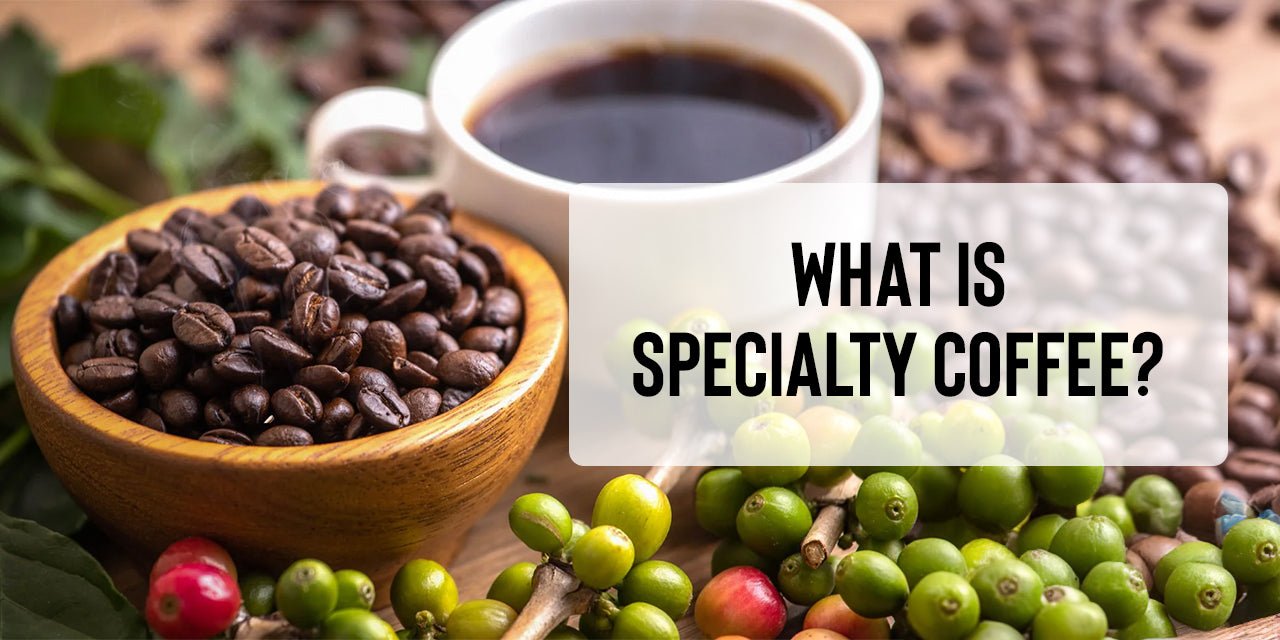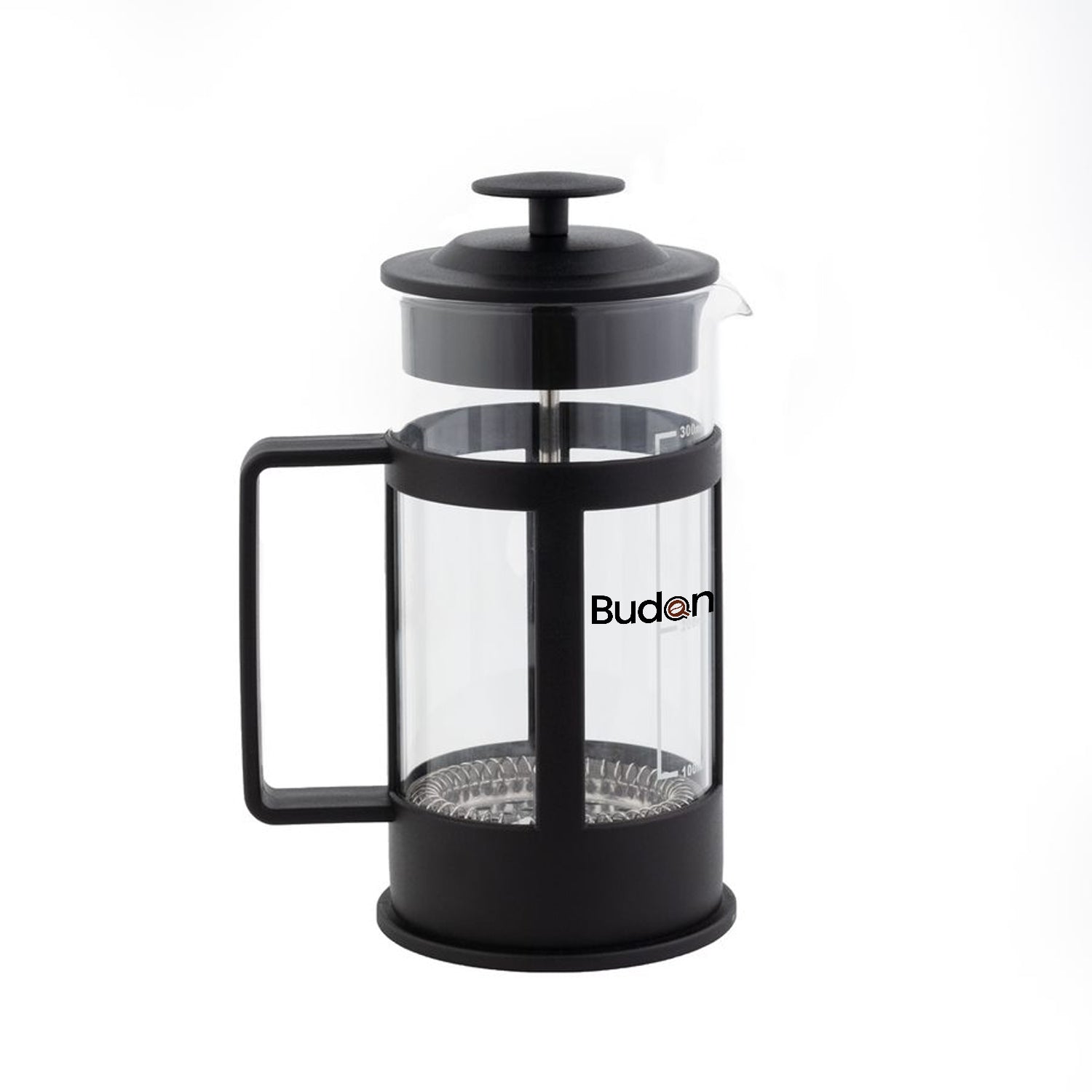The taste, flavours and aroma of a freshly brewed cup of coffee can be extremely satisfying. One thing that makes a fresh brew so delectable is the choice of coffee, which is specialty coffee.
In recent years, the demand as well as production for specialty coffee has risen. It has become a favourite among home coffee brewers. So, what is specialty coffee and what makes it 'special'?
In this article, let’s walk through the things that sets specialty coffee apart.
What is Specialty Coffee?

Specialty coffee is a term used to describe high-quality coffee beans that have been sourced and roasted carefully. However, not all coffee can be specialty coffee if they are paid careful attention to. The term is reserved for coffee that scores over 80 points on a 100-point scale by the SCA (Specialty Coffee Association).
The scoring is based on several aspects of the coffee. It includes fragrance, aroma, body, flavour notes, bitterness, acidity, aftertaste and overall taste.
Generally, they are produced by small, independent coffee agriculturalists who prioritize quality over quantity. The coffee beans are also grown more often than not at higher altitudes. Furthermore, sustainability is at the heart of specialty coffee.
Most importantly, the ‘special’ aspect of speciality coffee is the guaranteed quality of practices through all stages of coffee production. It starts from the seed the soil is planted in, the way it is harvested to the roasting and packaging of coffee beans.
What Makes Them 'Special?'

Several factors set specialty coffee apart from instant or commercial coffees. Some of them include freshness, quality and traceability. Let's take a closer look at these below:
- The Quality of Coffee: Specialty coffee is made from high-quality coffee beans that are often grown at higher elevations in specific microclimates. Although both Arabica and Robusta can be qualified as specialty coffee, most coffees are generally of the Arabica species.
- Through the supply chain of coffee, from the farms and processing unit to the roastery, great care is taken to ensure the quality of coffee. They use precise techniques and equipment where necessary. This results in high quality, flavourful and balanced coffees.
- Freshness: When it comes to specialty coffee, freshness is a key differentiating factor. Typically, specialty coffee is roasted in small batches and consumed relatively soon after roasting to preserve its freshness and flavour.
- Traceability: Specialty coffee is often sourced from specific coffee farms or estates, allowing for traceability back to the exact origin of the beans. This transparency in sourcing ensures that you know where the coffee comes from. This way, you can be sure to support sustainable and ethical farming practices.
- Complex Flavour Profiles: One of the hallmarks of specialty coffee is its complex and nuanced flavour profiles. Specialty coffees can exhibit a wide range of flavours, including fruity, floral, chocolaty, nutty and spicy notes. The flavours more often than not are a direct reflection of the bean's variety, growing conditions and processing methods.
What Happens at A Specialty Coffee Farm?

The cornerstone of Specialty Coffee is laid at the coffee farm. The farmer pays a lot of attention to the soil type and nurtures it. Then, the farmer selects the right variety of coffee and plants them at the most optimal environment.
Here's a step-by-step breakdown of what goes on in a Specialty Coffee farm:
- Planting & Cultivation - The coffee trees are planted and cultivated in nutrient-rich soil. Farmers also use ethical and sustainable practices such as composting and crop rotation, to maintain the soil health.
- Harvest - Coffee cherries are hand-picked when they ripen to a deep red colour. Skilled labourers ensure that only the ripest of the cherries are harvested. This process can take several weeks.
- Processing - Then, the coffee is processed where the outer layers are removed in an intense, step-by-step process. There are three common methods of processing: Natural, Washed & Honey Sun Dried Method.
- Sorting & Grading - Once the beans are fully dried, they are sorted and graded based on their quality, size and shape. Typically, this process is done by hand to ensure every single bean is up to the mark.
After the post-harvest processes are complete, the coffee is shipped off to the roasters. The green coffee is then roasted at the roastery. This step transforms the coffee into the brown coffee bean that we relish. The roasting process can take anywhere between a few minutes to several hours depending on the desired roast level.
Finally, the specialty coffee beans are packed in airtight bags to preserve their flavours and freshness. Then, the roasters label their bag with information about the origin, roast level and flavour profile of the coffee.
Closing Lines
The process of producing Specialty Coffee involves highly skilled people working behind the scenes. It is also a labour-intensive process. From plantations to your distributors - the coffee bean completes quite a journey before slipping out of the coffee bag and into your coffee grinder.


























